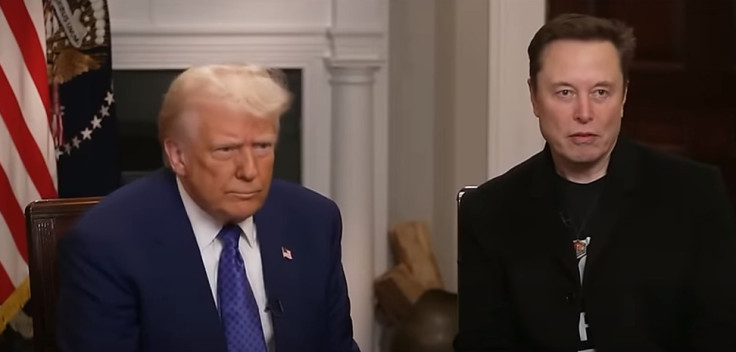
Elon Musk, President Donald Trump's appointed point person for addressing government inefficiencies, doubled down Monday, reiterating his threat to fire federal workers who fail to justify their positions.
His statement followed an earlier directive from the Trump administration, which suggested that employees were not required to respond, Reuters reported.
Musk had previously issued a mandate asking federal workers to summarize their accomplishments from the prior week.
As the deadline for responses approached Monday, Musk, who was appointed to lead the newly established Department of Government Efficiency (DOGE) tasked with trimming government spending, voiced frustration on X over the backlash to his directive.
The email request was utterly trivial, as the standard for passing the test was to type some words and press send!
— Elon Musk (@elonmusk) February 24, 2025
Yet so many failed even that inane test, urged on in some cases by their managers.
Have you ever witnessed such INCOMPETENCE and CONTEMPT for how YOUR TAXES are… https://t.co/QjSmY4ezpg
He warned employees again Monday that those who failed to respond would face termination, stating that it was their second chance, as directed by the president.
"Subject to the discretion of the President, they will be given another chance," Musk wrote, referring to the employees who did not meet the deadline to submit a recap of five things they had accomplished by 11:59 p.m. Monday. "Failure to respond a second time will result in termination."
Contradictory guidelines from the OPM
Musk's comments directly contradicted guidance issued earlier by the Office of Personnel Management (OPM), the U.S. agency overseeing federal employees. On Monday afternoon, OPM informed agency leaders that responding to Musk's initial email was voluntary, and that non-compliance would not be considered a resignation.
Acting OPM Director clarified that while responses were not mandatory, they were "strongly encouraged," reported The Hill.
OPM directed employees to "Please reply to this email with approx. 5 bullets of what you accomplished last week and cc your manager. Please do not send any classified information, links, or attachments. Deadline is this Monday at 11:59pm EST."
Several federal departments adopted similar positions. A senior manager at the General Services Administration (GSA) confirmed that while the response was voluntary, the agency still urged workers to comply.
Meanwhile, the Department of Health and Human Services advised employees to keep responses general and avoid specific details about drugs or contracts related to their work.
Departments and agencies push back
Some agencies, however, took immediate action to prevent employees from responding to the earlier mail. FBI Director Kash Patel messaged the staff Saturday, urging them to pause their replies and stating that any necessary information would be coordinated by the FBI's Office of the Director.
"The FBI, through the Office of the Director, is in charge of our review processes and will conduct reviews," Patel added.
Similarly, the Department of Homeland Security informed its more than 250,000 employees not to answer the email.
The Department of Justice followed suit, with Assistant Attorney General for Administration Jolene Ann Lauria sending an email instructing employees to ignore the request.
"Due to the confidential and sensitive nature of the Department's work, DOJ employees do not need to respond to the email from OPM. If you have already responded to this email, no further action is needed," Lauria stated.
Despite the pushback, President Trump defended Musk's mandate, offering his continued support for efforts to streamline the federal workforce.
"There was a lot of genius in sending it. We're trying to find out if people are working, and so we're sending a letter to people, 'Please tell us what you did last week.' If people don't respond, it's very possible that there is no such person or they're not working," Trump told reporters.
Political backlash
Republicans in the Senate were quick to criticize Musk's approach, calling it a hasty decision that undermined the leadership of Senate-confirmed agency heads.
"I don't think it was handled very well in terms of the surprise element of it or what the point of it was," said Sen. Shelley Moore Capito (R-W.Va.). "That, I think, was confusing because I think there were a couple different explanations. I think a little clarification on the voluntary part is probably good," she added, referring to OPM's guidance that responses were optional.
Democrats also voiced their disapproval, with Sen. Mark Warner (D-Va.) labeling the directive "callous," "careless," and "irresponsible."
AI to assess job necessity
To evaluate whether specific government positions are essential, the responses from federal workers will be processed by an artificial intelligence system. Sources revealed that this AI system, a Large Language Model (LLM), will analyze the responses to determine whether the employees' roles were critical to the government's mission, NBC reported.
The OPM email explicitly asked workers not to include links or attachments, as the data will be processed by the AI system for analysis.
Musk, appointed by President Trump to streamline government operations, aims to reduce the federal workforce by as much as 10%.




